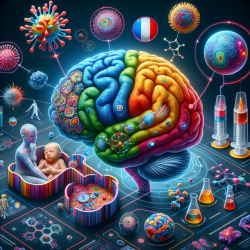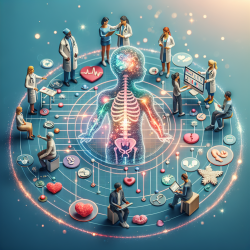The complexity of autism spectrum disorder (ASD) continues to challenge researchers and practitioners alike. Recent advancements in understanding the neuroimmune mechanisms involved in autism have opened new avenues for exploration and intervention. This blog post aims to provide practitioners with insights into these mechanisms and how they can enhance their practice by implementing the latest research findings or pursuing further study.
The Role of Neuroimmune Mechanisms in Autism
Autism spectrum disorder affects approximately 1 in 36 people, with core features including impaired sociability, repetitive behaviors, and deficits in verbal communication. While genetic factors account for a significant portion of ASD cases, environmental risk factors such as maternal immune activation (MIA) during pregnancy are gaining attention for their potential role in ASD pathogenesis.
MIA is a response to inflammation during pregnancy that can cross the placenta and affect fetal brain development. Epidemiological studies suggest that severe infections during pregnancy may increase the risk of ASD in offspring by up to 30%. However, the precise mechanisms by which inflammation influences early brain development remain underexplored.
Stem Cell Technology: A Game Changer
The advent of human cellular models using induced pluripotent stem cells (iPSCs) offers unprecedented opportunities to study these mechanisms. These models allow researchers to mimic early stages of brain development and investigate how prenatal inflammation might increase ASD risk. iPSCs provide access to molecular manipulations and enable the study of tissue that would otherwise be inaccessible.
Practical Applications for Practitioners
- Stay Informed: Keep abreast of current research on neuroimmune mechanisms and ASD through journals, webinars, and conferences.
- Integrate Findings: Consider how new insights into MIA and inflammation might inform your assessment and intervention strategies for children at risk of ASD.
- Collaborate: Work with researchers and other practitioners to develop comprehensive care plans that address both genetic and environmental factors contributing to ASD.
The Path Forward: Encouraging Further Research
The field of neuroimmune mechanisms in autism is rapidly evolving. Practitioners are encouraged to engage with ongoing research efforts and contribute to this growing body of knowledge. By participating in studies or collaborating with research institutions, practitioners can help refine our understanding of how inflammation impacts brain development and identify potential therapeutic targets.
Neuroimmune mechanisms in autism etiology - untangling a complex problem using human cellular models










